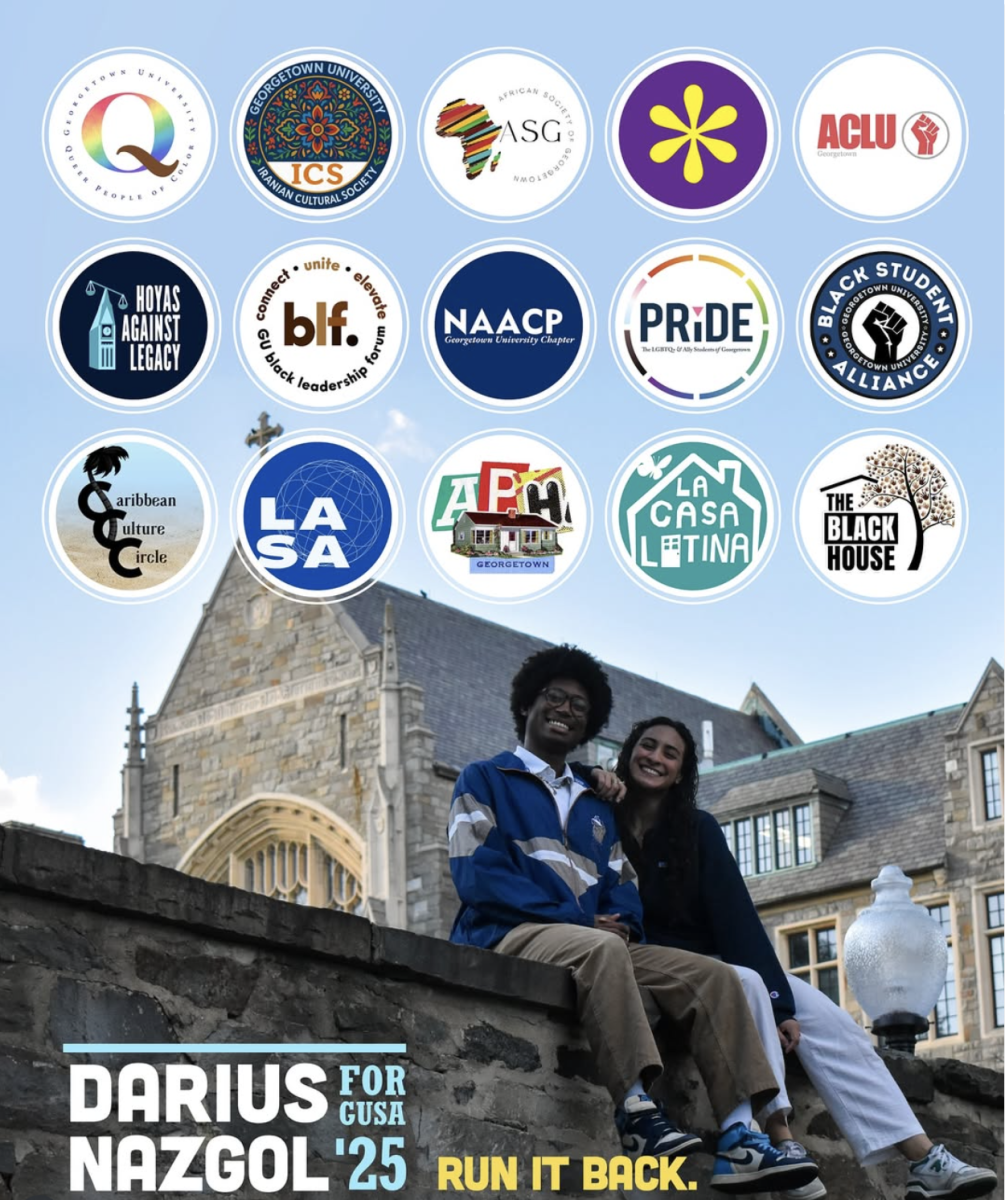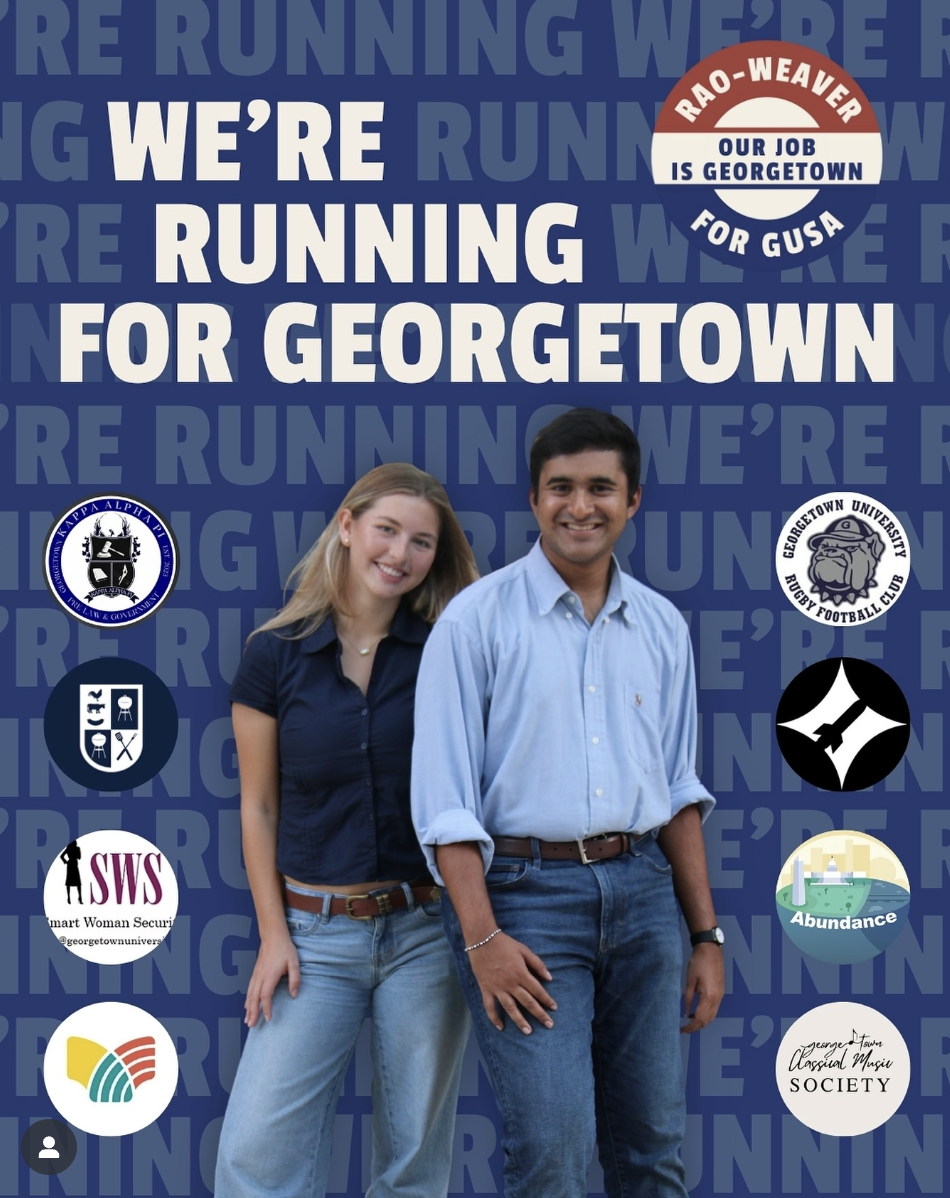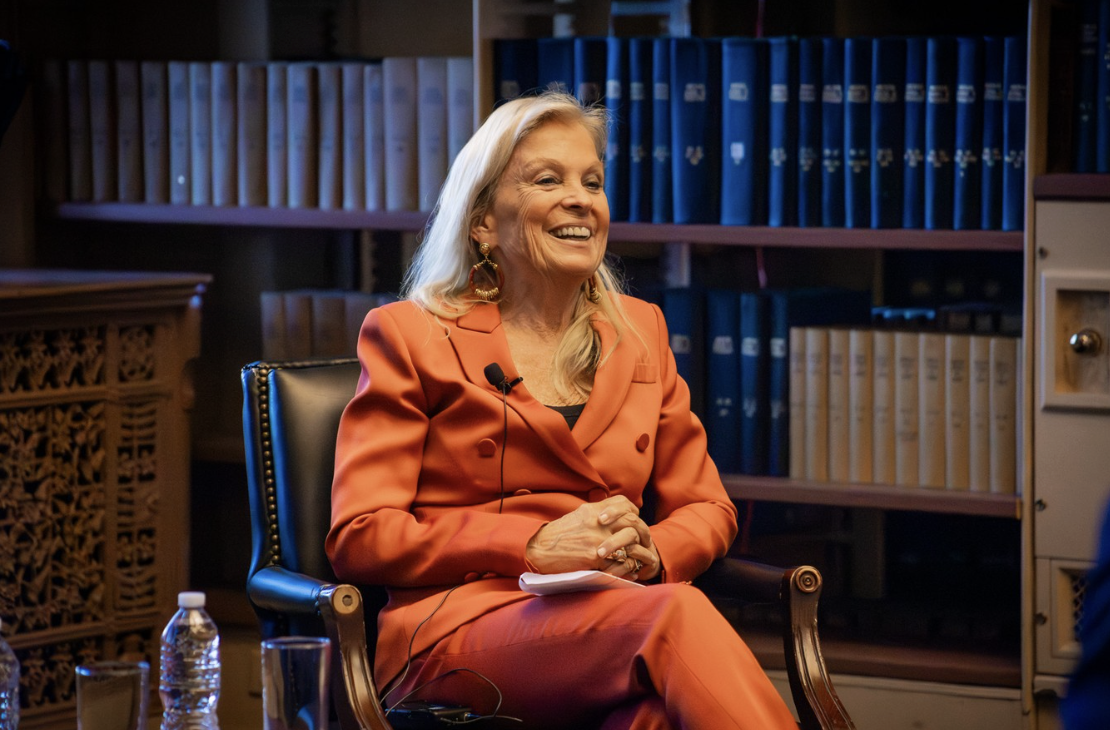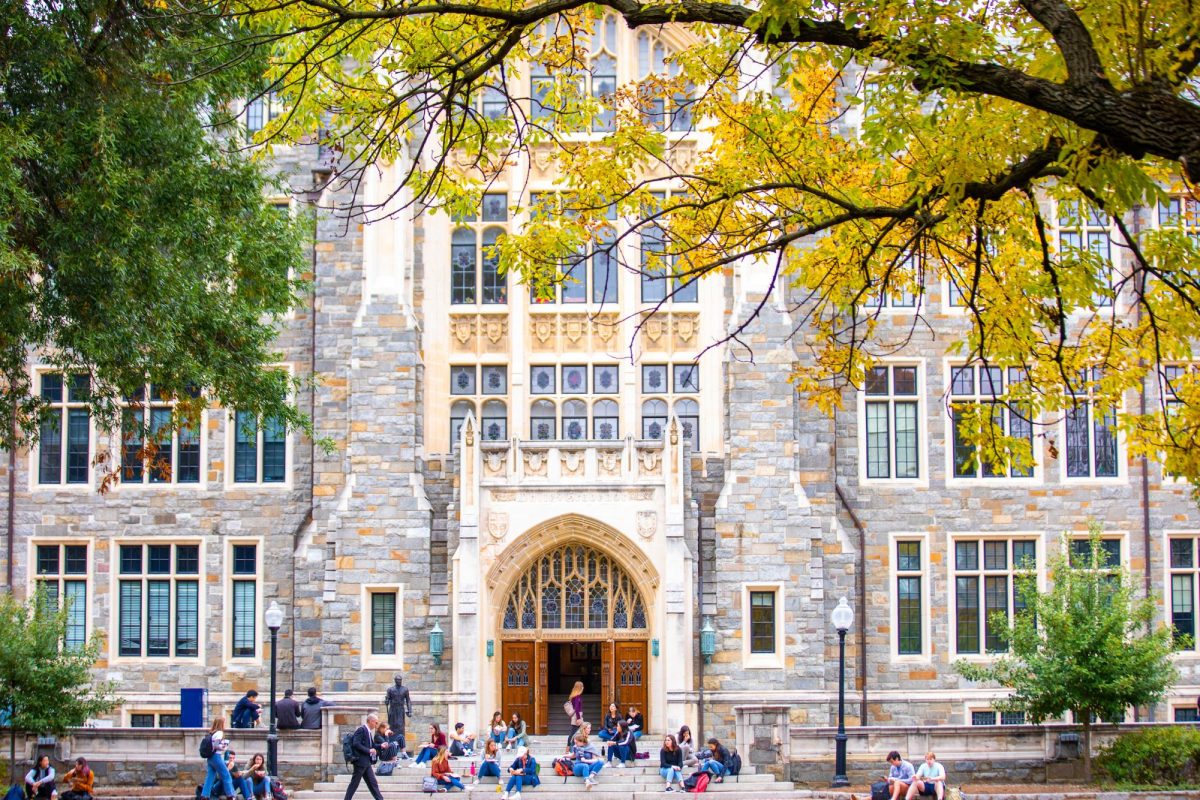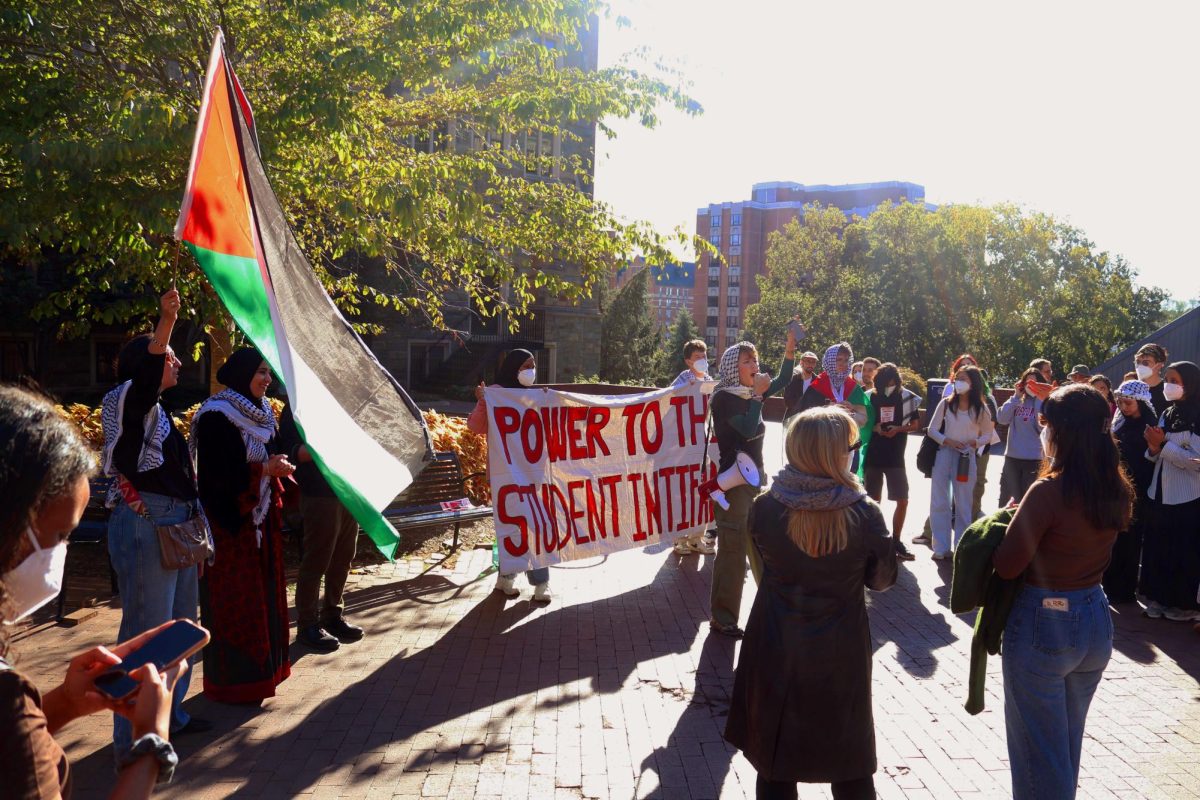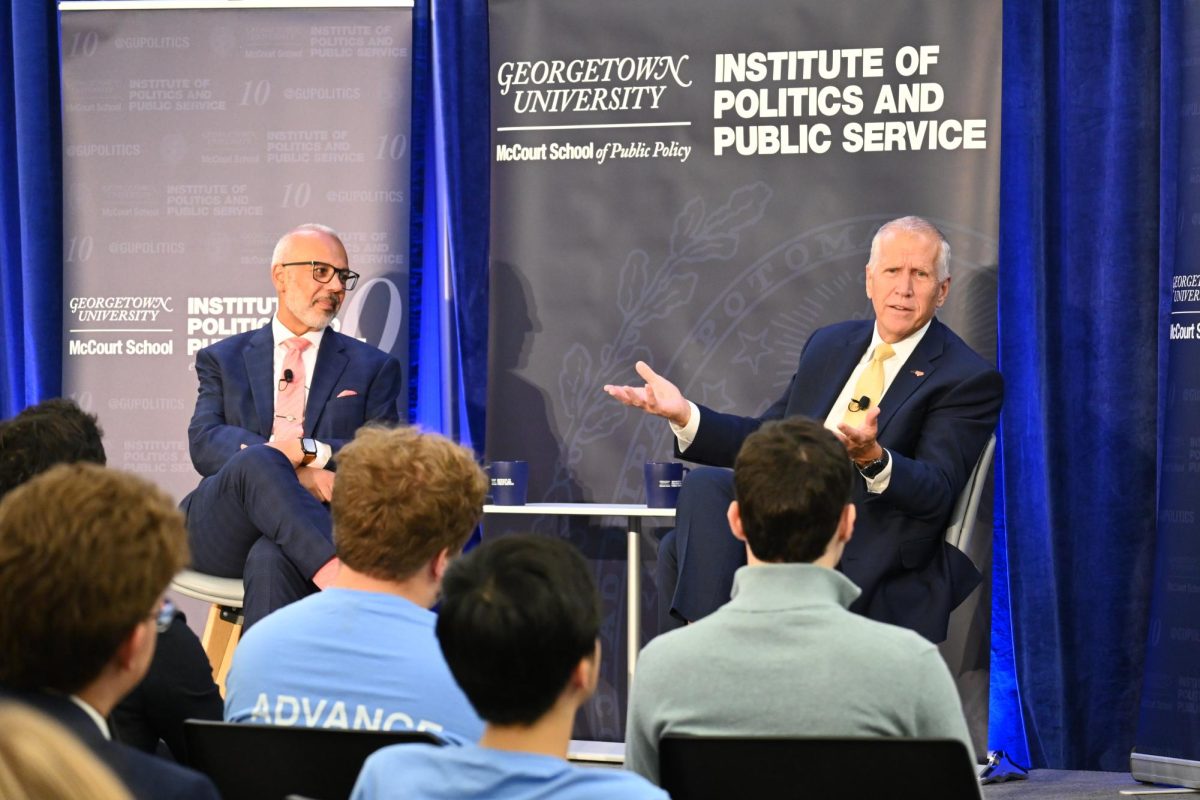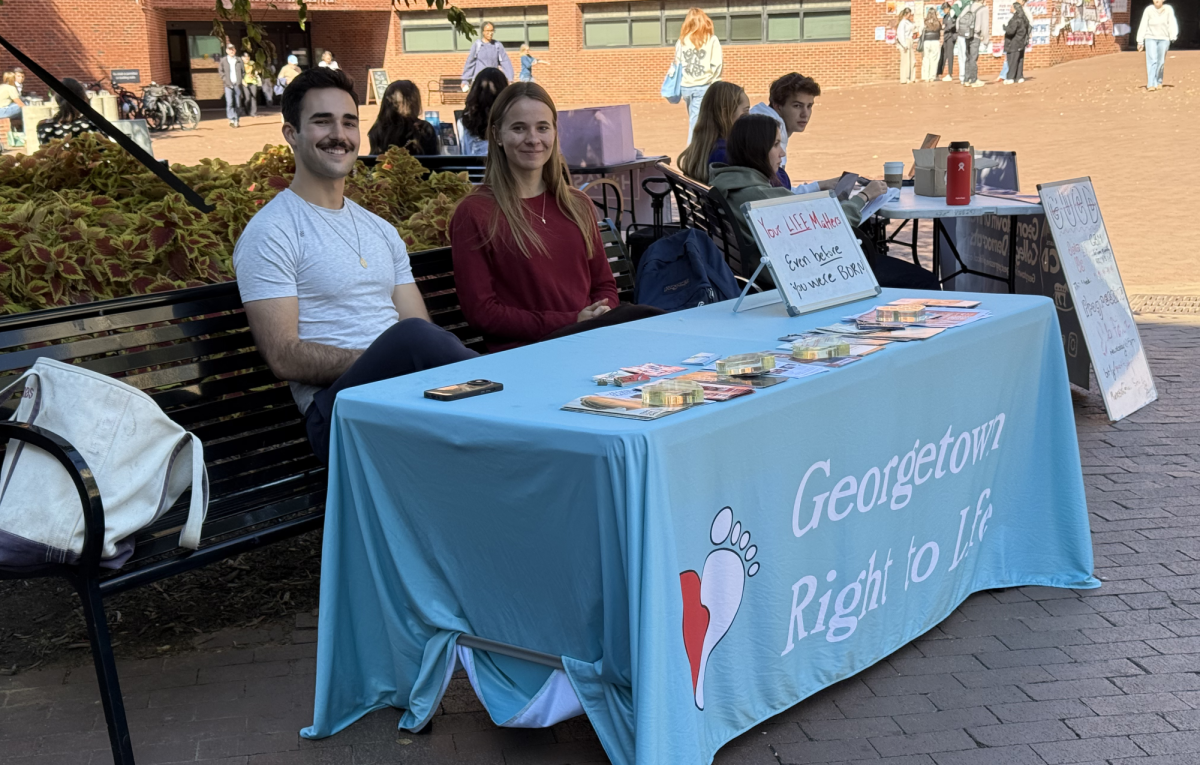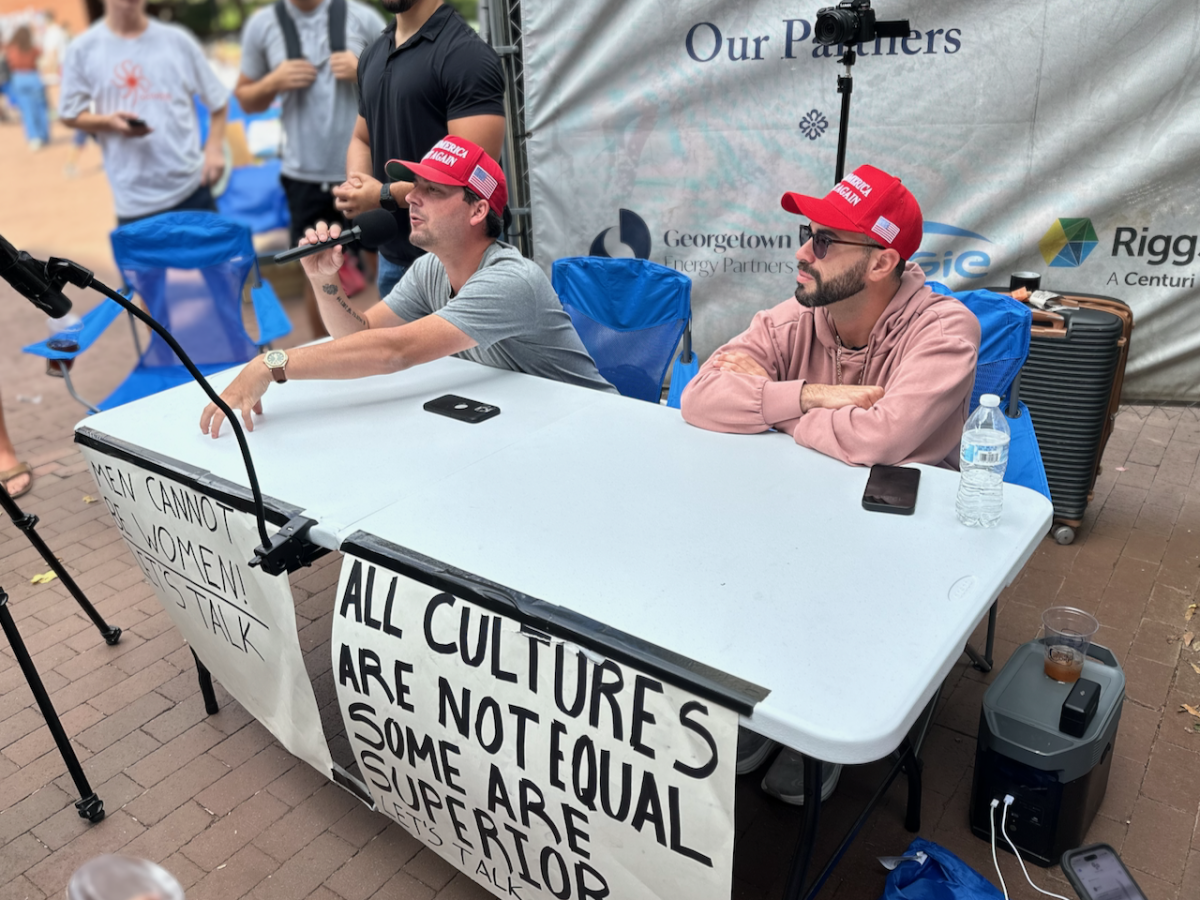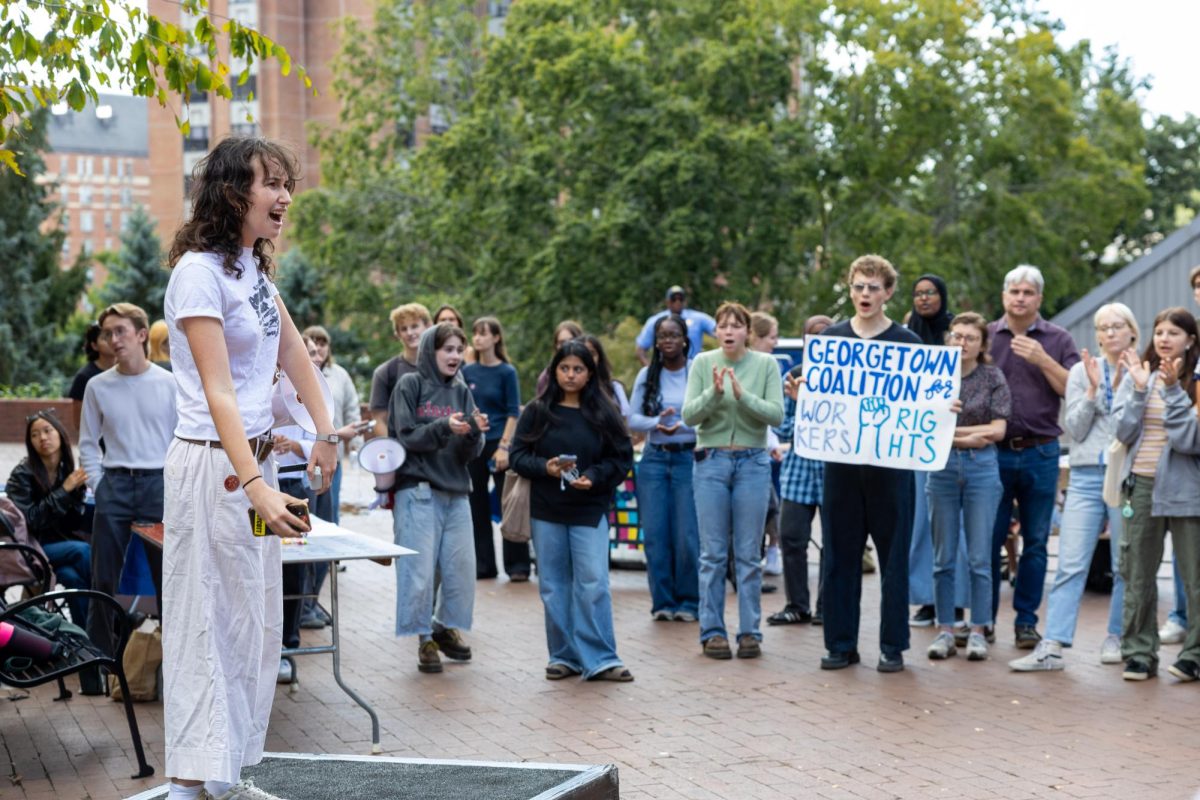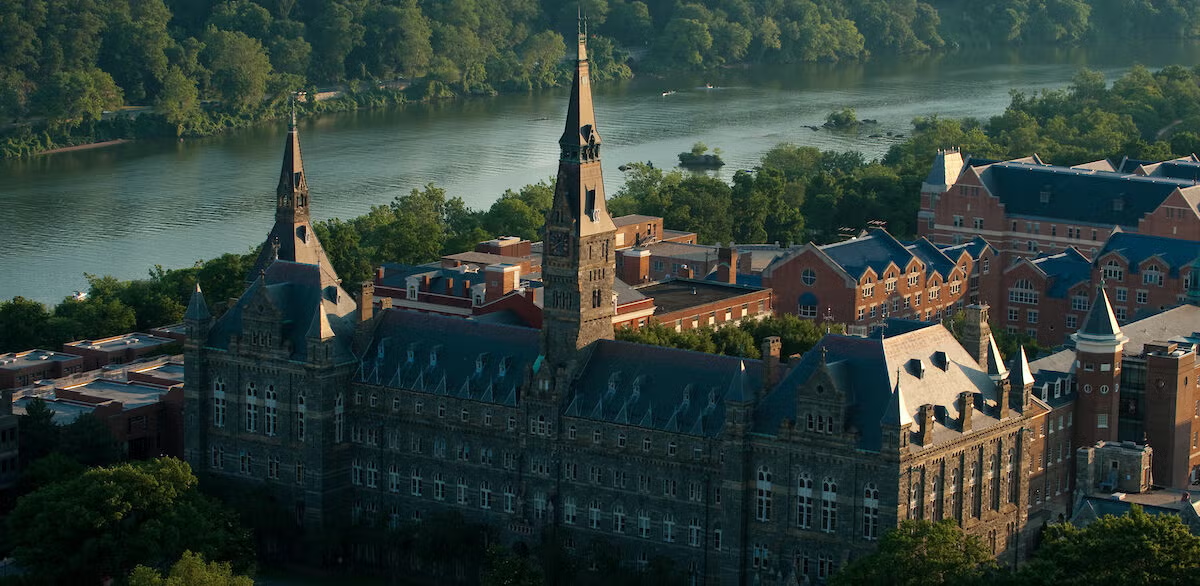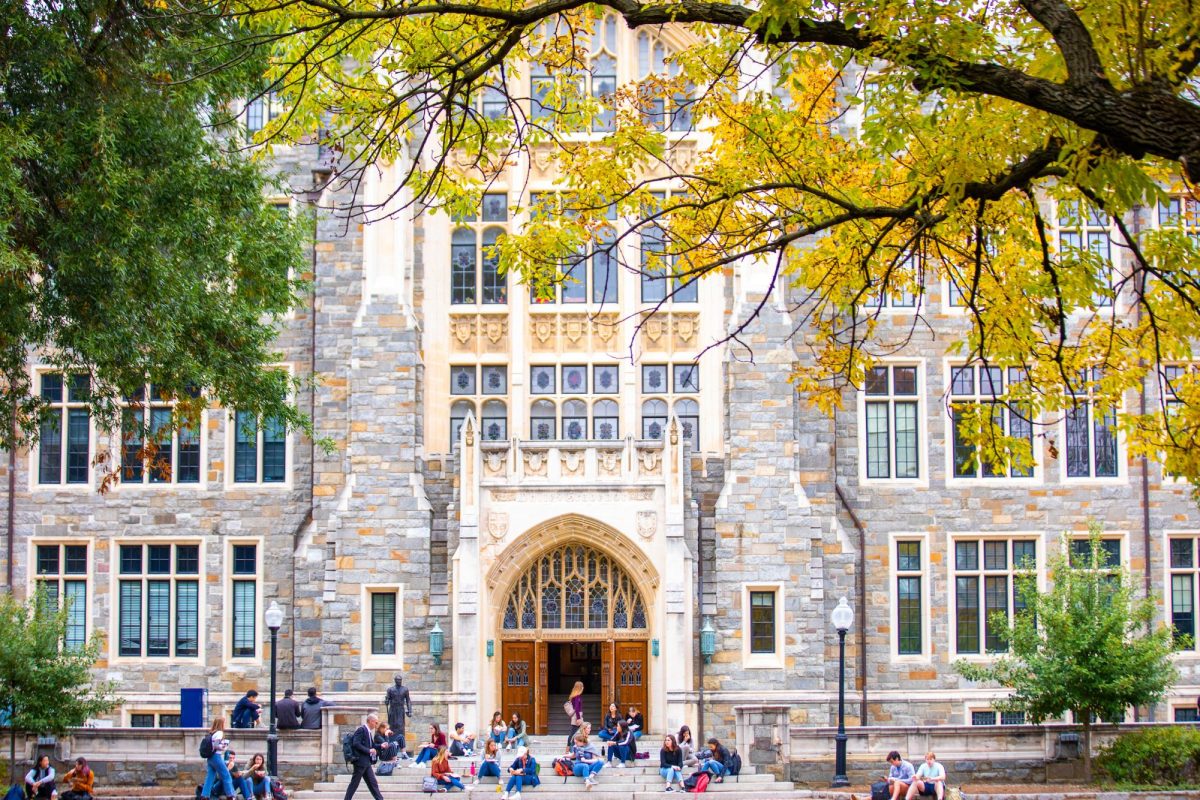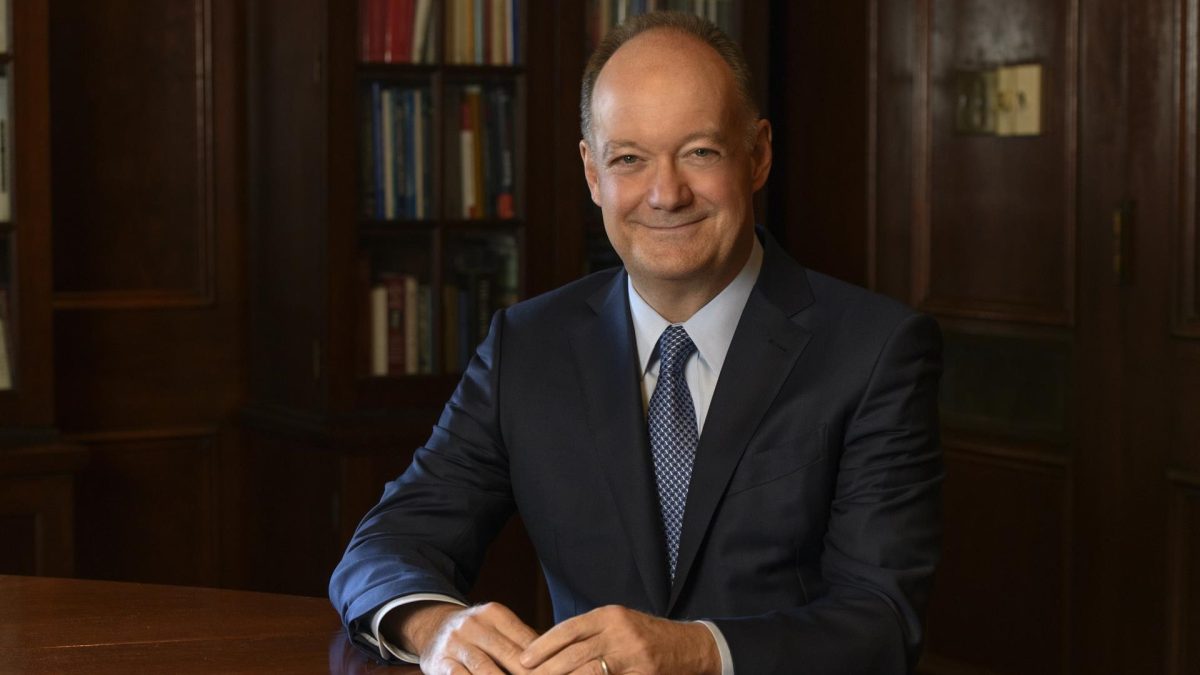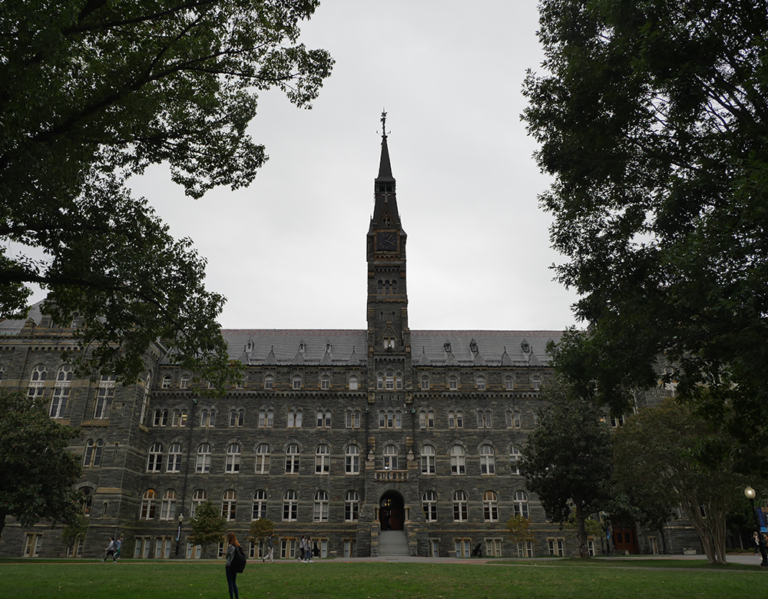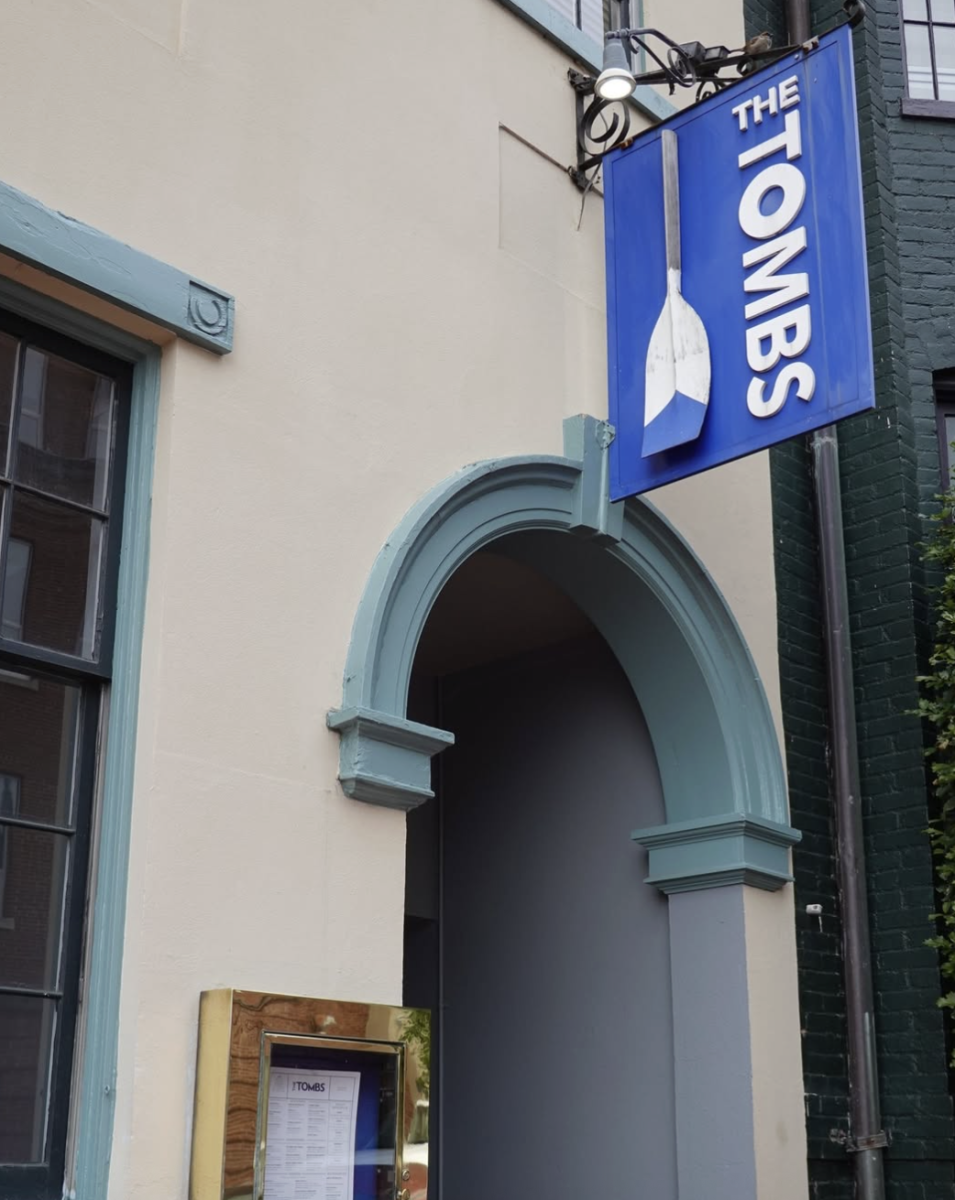Luke Hughes (SFS ’27) and Mikey Williams (SFS ’28), running for Georgetown University Student Association (GUSA) president and vice president, aim to downsize GUSA and provide support for student clubs on campus.
The Hoya sat down with the candidates to discuss their policy platform. Hughes and Williams highlighted reforming GUSA, their relationships with university administration, and addressing student needs like dining reform and updated information for international students. Voting opens Oct. 22 and closes Oct. 24.
Below is a partial transcript of their interview.
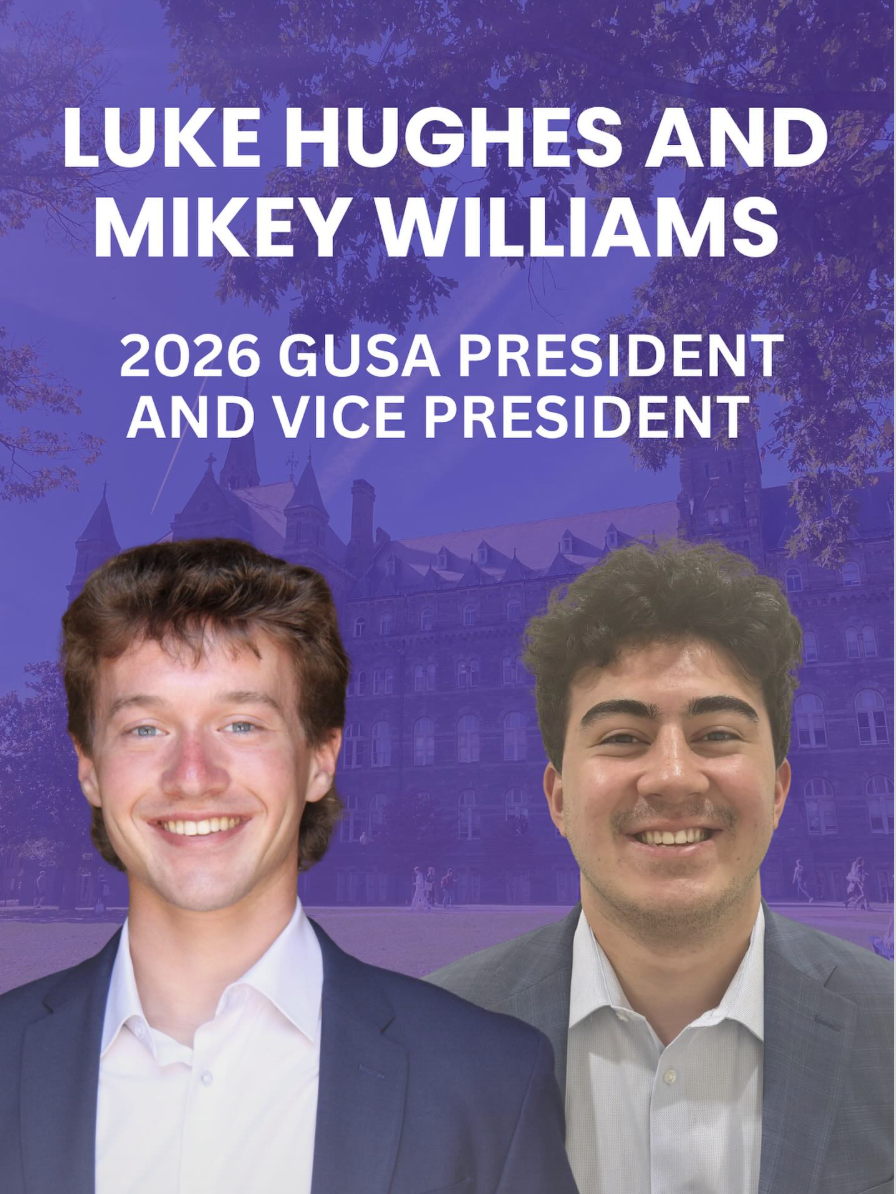
Tell us a bit about yourselves and your role in the Georgetown community.
Hughes: On campus, I am involved in several clubs. I’d say the ones that I’m most involved in are the Blue & Gray Tour Guide Society, and I’m also involved in the Georgetown University Lecture Fund. I’m also involved in Catholic Ministry.
Williams: Last year I was part of the GUSA Senate. This year, I’m trying to get involved in more clubs. I’m joining GU SAFE — they go to places in the area, take leftover foods from there and bring them to certain kitchens in the D.C. area. I’m also part of student advisory to the Vice President of Student Affairs’ Office.
Why are you running for GUSA? What experiences do you have that qualify you for this position?
Hughes: There’s more change that I want to see on campus, and I want to do more than just the clubs I’m in, so I saw GUSA as a natural path to do that. I think it’s important that the GUSA executive knows how to speak with the administration, and through my different involvements on campus, I’ve been able to get to know various members of the administration very well.
Williams: Last year, when I was in the GUSA Senate, I didn’t realize how many possibilities there actually are for students to make change. And so I feel like the most effective way to go about that is running with Luke as vice president.
If elected, what are your top priorities?
Luke: Our main objectives, should we be elected, is to reform GUSA to make it more effective. And then secondly on our platform is to actually work on the student needs, whether it’s meal plan reform or whether it’s helping international students obtain the most up-to-date information on access to student visas, federal grants, you name it.
Williams: I don’t think GUSA should be used as a means to check clubs. I feel like it should be more of a means to give information, or be as much of an outlet to student administration as possible.
How will you address GUSA’s low approval rating and general skepticism from the student body, and how will you keep students engaged with GUSA throughout the year?
Hughes: One way to do that is to rightsize GUSA. I think there’s some positions we could cut and some reform that can be done to ensure that the news surrounding us is mostly positive news; it’s not about ethical dilemmas or election issues or or things that stem from what I think is too large an organization with really passionate students who care about student government.
Recently, on social media, there’s been some speculation around secret societies playing a role in GUSA elections. Are you currently or have you ever been in any anonymous societies?
Hughes and Williams: No.
How do you believe you will be able to accomplish the goals you set and follow through on your campaign promises during your term? Do you believe you will be able to achieve all your goals or most of your platform?
Hughes: We are not running on a large platform. We are narrowing it down to a few things. I think that all too often, whoever is running — for exec, for senate — they have these large platforms with so many things they want to tackle. However, our platform focuses on just a few things. We want to reform GUSA, we want to help facilitate student-university relationships, and then we also want meal plan reform and other things to do directly with students.
Do you have any examples of specific reforms to GUSA you’re looking to implement?
Hughes: We think the GUSA Senate is a place where there can be a lot of reshaping. There might be too many senators, too many first year representatives. It’s too large right now — people submitting legislation that really does go nowhere. We’ve also talked about reforming some of the directors, some of the cabinet, some parts of the cabinet as well to shrink — some places that we think are a little bit less effective. Essentially what our ideal GUSA would look like is a GUSA that has SAC, that funds clubs and has the president, the vice president, the chief of staff, executive assistant and then a group of students who facilitate university-student relationships.
Your platform supports the idea that improved interactions between on-campus clubs and other initiatives results in a more unified student body. What specific interactions and initiatives do you envision?
Hughes: We think that there’s a lot of clubs on campus that are trying to accomplish similar goals. There’s ACLU, Hoy*s for Choice, College Democrats. There’s all these groups on campus that are trying to fight against, for example, the Trump administration’s actions against university students. How could we better coordinate those clubs together? How could we coordinate those clubs with other clubs at other universities in the D.C. area to organize better movements, better responses to action by the administration? How can we facilitate those relationships?
Do you support ending legacy admissions to Georgetown?
Hughes: No. I do not think that Georgetown should end the legacy admissions, particularly because of Georgetown’s financial state right now.
Do you support university divestment from companies with ties to the Israeli military?
Hughes: I voted no on the referendum. Not only do I think that Georgetown should not divest from companies tied with the Israeli military, but especially when it comes to the university part, I think that is very inconsistent for Georgetown. I believe that if Georgetown ends ties with universities, institutions in Israel, that also means that Georgetown should end ties with Qatar and schools in China for the same reason, and I don’t think they should do that, because I think there’s many benefits that come from ties with these institutions.
Do you support increasing the university investment in the Capitol Campus over the next few years?
Hughes: I don’t think that that is right for the university administration right now to increase investment in the Capitol Campus due to the financial state that we saw last year.
Do you support requiring GUPD presence at smaller club-sponsored events?
Hughes and Williams: Yes.


